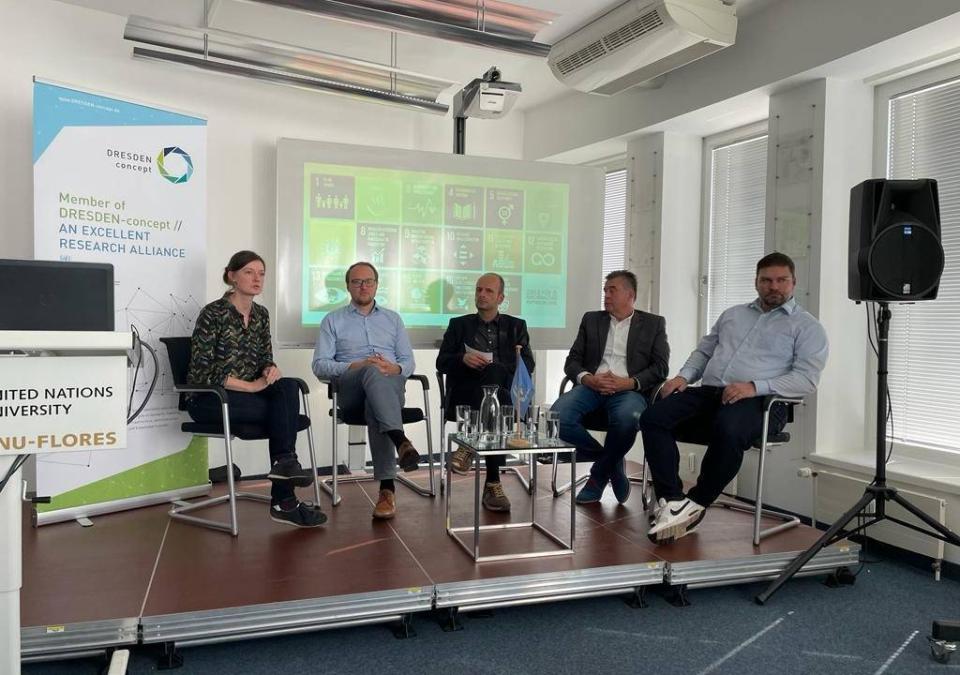Members of the UNU-FLORES team were very happy to join their neighbours and fellow World Trade Center occupants in exploring best practice for the Sustainable Development Goals (SDGs) and strategies for sustainability this week.
Led by Sustainability Coordinator, Juliane Dziumla, UNU-FLORES co-organised a panel discussion with the WTC which saw a range of representatives from Dresden and beyond discuss their views on the SDGs, and how we can overcome the challenges to their integration on different scales. The delivery of the SDGs are, of course, incredibly important on the global level and for policy design and decision-making, however, a significant aspect of this session was to provide guidance on contributing to the SDGs to the private sector, educational representatives, communities, and families. In viewing the SDGs through the resource nexus lens, it is clear that global challenges can only be addressed by understanding the interactions between the resources we extract and use – even those in our everyday lives that may at first appear insignificant.
To open the discussion, Juliane presented the work of UNU-FLORES in relation to the history, development and implementation of the SDGs, before the panel explained their viewpoints and goals to advance sustainable development. Of particular note was the input from Matthias Tietze, manager of Carbocon GmbH, who highlighted the role of carbon concrete in resource preservation in the construction sector - which is currently responsible for high CO2 emissions - in the delivery of SDG 11, and the creation of more sustainable cities. Dr. Ronny Brünler, the Smart City Manager for the City of Dresden, explained his work focusing on sustainable mobility and the ways in which it can benefit from innovative technology. He emphasised the increasingly vital role technology plays in sustainability, giving the example of Dresden enabling more bike-sharing points at key transport hubs to make it easier for people to switch between public transport and bicycles.
Another approach to saving resources is the idea of using office space more efficiently. Uwe Thuß, the Managing Director of Visio Real Consult GmbH & Co. KG, presented his vision of a new working world where digitalisation goes hand in hand with a flexible and innovative office concept.
Of course, the concept of efficient office occupancy is not a foreign one to the UNU-FLORES Team, who are greatly anticipating their self-designed, upcoming Floating Office that is currently in development. This new layout will see different working environments installed to cater to specific needs, such as quiet zones, team working areas, and workshop space. The new concept will allow for almost 3 times more workspace than before.
The event received very positive feedback from the participants, and highlights the very encouraging attitude of Dresdners towards implementing strategies for sustainability. We are also very appreciative of the WTC team for their collaboration, and look forward to future opportunities to ‘walk the talk’ for sustainability together.



